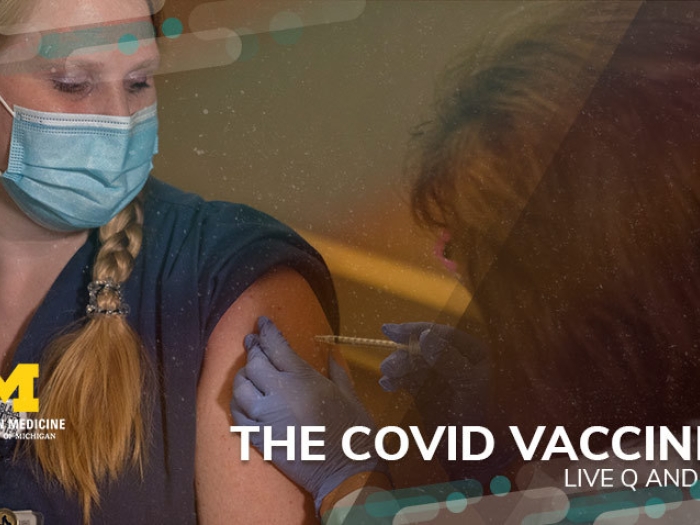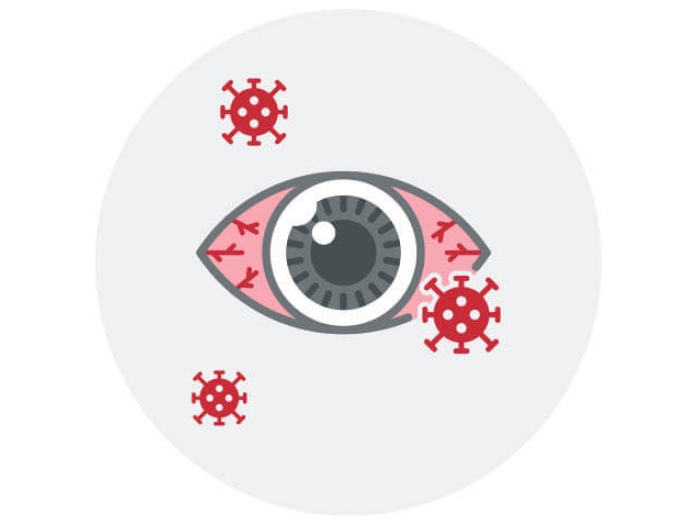From long-overdue debt to lower credit scores, study shows even those not sick enough to be hospitalized were more likely to suffer financially their infection
3:32 PM
Author |

The lingering effects of COVID-19 on some patients’ health may have gotten a lot of attention, but now a study suggests many also face long-term major financial impacts after their illness as well.
Whether or not they got hospitalized during their bout with COVID-19, patients had a higher risk of serious money problems after their infection, compared with a comparison group of individuals whose financial outcomes were measured prior to getting COVID-19. Specifically, after a COVID-19 infection, patients were more likely to have debts so overdue they were sent to a collection agency, and more likely to have a low credit score.
The study, which used a unique method of anonymously linking individuals’ health care records and financial records, shows that COVID-19 patients who required hospital care had the highest rates of serious financial issues after their illness. Data from more than 132,000 Michiganders offers only a snapshot of financial health six months before or after a COVID-19 illness. The research team from the University of Michigan and Johns Hopkins University is now working to get a longer-term view.
Led by Michigan Medicine internal medicine physician and health care researcher Nora Becker, M.D., Ph.D., they published their findings in the Journal of Hospital Medicine.
After adjusting for differences among patients, 42% of the patients hospitalized for COVID-19 infection had a low credit score six months after their hospital stay, compared with 34% of a similar group of people who hadn’t yet required a hospital stay for COVID-19 but went on to need one later.
The gap was smaller, but still significant, between the two groups of non-hospitalized patients.
Similarly, 27% of the patients who had been hospitalized for COVID-19 ended up having medical debt sent to collections agencies, compared with 19% of the comparison group; the gap for non-hospitalized patients was small but still significant.
There were also significant increases in non-medical debt going to collections after COVID-19 hospitalization.
The team took their financial snapshot of all the patients using credit bureau data from January 2021. They adjusted for factors such as the economic status and vaccination rate in the areas where patients live; all patients had commercial insurance.
“More than half of Americans now report having had COVID-19, and more than 450,000 have been hospitalized, so the potential number experiencing serious financial issues linked to their experience with the virus is high,” said Becker.
“While we cannot tell from our data exactly how linked these financial outcomes are with the aftermath of infection, we know that others have shown the impacts of COVID-19 infection on the short- and long-term ability to work,” she added. “Further research in this area is crucial in order to figure out how to design policies to protect COVID-19 survivors from financial harm.”
Becker and her colleagues also note that as of this spring, all of the economically focused pandemic policies that might affect individuals’ pocketbooks have expired, from food and rent assistance to no-cost coverage for testing, outpatient medication and hospitalization.
SEE ALSO: As health problems stack up, so do serious financial woes (michiganmedicine.org)
The study’s senior author, John Z. Ayanian M.D., M.P.P., is a professor of internal medicine at U-M and directs the U-M Institute for Healthcare Policy and Innovation, to which Becker and co-authors and fellow U-M Medical School faculty Erin F. Carlton M.D., M.Sc., John W. Scott M.D., M.P.H., and Michelle H. Moniz M.D., M.Sc. belong. Co-author Theodore J. Iwashyna M.D., Ph.D., formerly of U-M, is at the Johns Hopkins University.
The data for the study came from the Michigan Value Collaborative, one of the collaborative quality initiatives funded by Blue Cross Blue Shield of Michigan, and from Experian.
The study was funded by the National Heart, Lung, and Blood Institute (HL138039) and Agency for Healthcare Research and Quality (HS025465, HS028672, HS028817).
Paper cited: “Patient adverse financial outcomes before and after COVID‐19 infection,” Journal of Hospital Medicine. DOI: 10.1002/jhm.13105

Explore a variety of healthcare news & stories by visiting the Health Lab home page for more articles.

Department of Communication at Michigan Medicine
Want top health & research news weekly? Sign up for Health Lab’s newsletters today!





